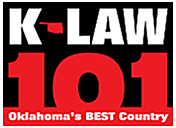
Oklahoma Lawmaker Wants To Make Bibles In Schools Mandatory
In today's news, Oklahoma State Senator George Burns is working to pass legislation that would require that all Oklahoma public schools purchase and maintain possession of at least one bible to be used to teach elective courses on the texts.
It's sort of a weird flex... George isn't working to require all students to be taught the bible, just that every school has the means to do so upon the request of students and/or parents because...
"Our Founding Fathers relied heavily upon the scriptures in the formation of our country, and the Bible they used was the King James Bible, which makes it an important historical document.
It influenced the writing of the major documents that created this country, including the Constitution. It’s historically accurate to use that version, and it is in the public domain, which is also important.”
And not just any bible will do... The legislation specifically names one of the newest and most popular yet controversial versions of the bible ever printed, the King James Version. Odds are if you pick up a bible in America or any other place England once controlled, it's likely the KJV bible.
State Senator Burns draws a conclusion that seems fair looking through his thought process. In teaching American history, civics, and the founding of the United States, the King James bible was most likely the book most often used in study and reference while drafting our declaration and constitution... but there's a glaring and obvious problem on the face of this proposed legislation...
What about the separation between church and state?
It's messy.
The "wall of separation between church and state" is a relatively new thing in terms of America's history. The idea didn't actually come up and work through the courts until last century, the 1947 Supreme Court Case of Emerson vs The Board of Education. That's when the modern definition came to be, which is what everyone tends to use as an example when talking about such sensitive topics.
Truth be told, while you can find the writings of such and specific phrasing used by our founding fathers as far back as 1635... but when you read the documents that became our constitution, even though contributors like Thomas Jefferson and James Madison wrote and believed separation from the establishment was the only way to truly ensure freedom of religion, there is no separation between church and state.
Even as our constitution states no religious test shall be required as a qualification to any public office or trust, most politicians take their oaths on their personally chosen religious books be it a bible, quran, etc...
Rather than building a "wall of separation" between church and state, our founding fathers chose to word things in a somewhat ambiguous way that the states later adopted in their own constitutions.
Congress shall make no law respecting an establishment of religion, or prohibiting the free exercise thereof.
Straight from the first amendment, state isn't to be free of the church, but rather the state isn't to endorse or restrict any church.
This actually came up a few years ago here in Oklahoma when state lawmakers actively adopted the construction of a Ten Commandments monument on the State Capital grounds.
If you remember, while the lawsuits inevitably rolled in, everything was pretty much hunky-dory and par for the course until another religion wanted a display for themselves. When these same lawmakers that lobbied for the commandments monument put up a fight over the Satanic Temple's successful attempt to construct a monument for satan, the Oklahoma Supreme Court squashed the whole ordeal rendering all religious monuments on state ground as unconstitutional.
So here we are once again looking at a piece of proposed legislation wondering if it's constitutional or not.
There's nothing on the books that says religion can't be electively taught in schools, there are religious clubs and classes in most schools led by teachers. The law only says the teaching of religion cannot be forced or required.
That being said, odds are since the law is specific in the version of the bible that coincides with specific beliefs, it could technically be "respecting the establishment" of a specific religion... At least that is what the lawsuits will likely argue. This piece of legislation has the slimmest of chances of even being voted on, let alone passed in the near future.
Perhaps Senator Burns is just a little confused about how the constitution was written. While we may have declared our independence as a new nation in 1776, the constitution wasn't written until 1787. Neither of these founding documents "created" the United States, they merely recognized the thirteen colonies were already a sovereign country.
LOOK: The most popular biblical baby names
How Many in America: From Guns to Ghost Towns
More From KLAW-FM







